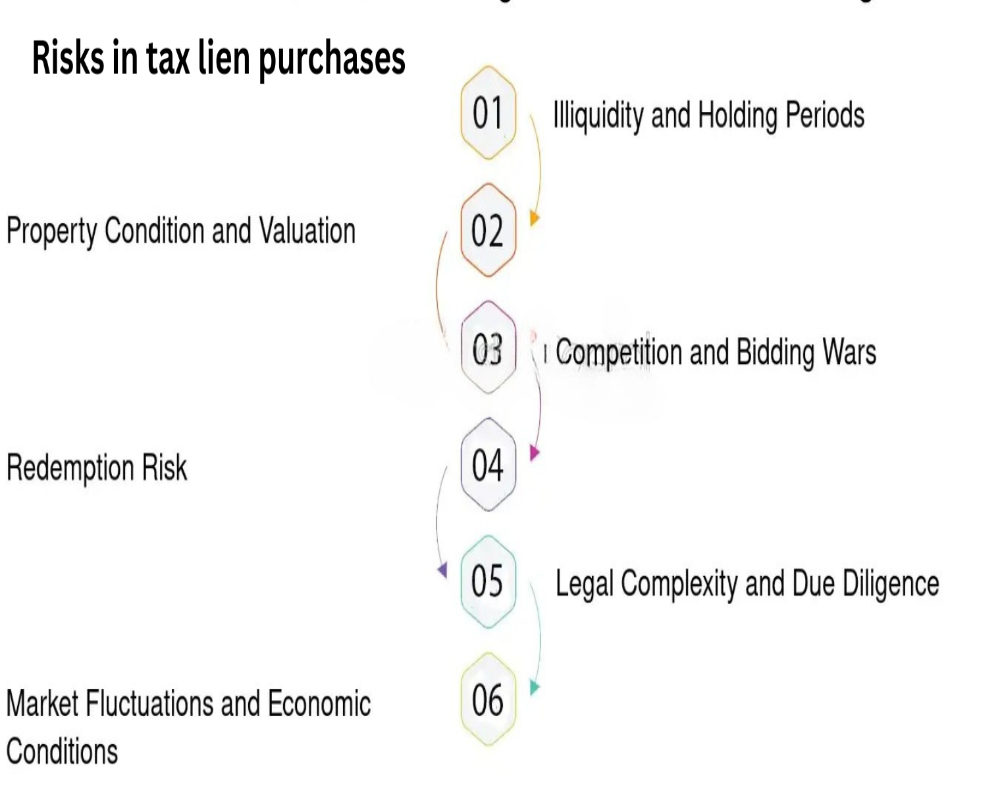Introduction
Tax lien investing is often viewed as a unique and potentially high-reward strategy in the real estate sector, enabling investors to earn interest or even acquire property through foreclosure. However, one of the most critical and often underestimated challenges in this approach is the issue of title risk. When an investor purchases a tax lien certificate, they are not acquiring the property itself but rather a legal claim against it for unpaid taxes. Although this claim gives the investor priority over many other creditors, it does not guarantee a clean or marketable title. Understanding and managing title risks is essential for any investor looking to move beyond collecting interest and toward property acquisition.
Nature of Title Risk in Tax Lien Investing
Title risk in the context of tax lien purchases refers to the possibility that the property encumbered by the lien may have unresolved or hidden legal issues that affect the ownership rights. These issues could include other superior liens, court judgments, bankruptcies, federal tax liens, easements, code violations, or probate complications. When a property goes to tax lien sale, the auctioning authority does not necessarily perform a comprehensive title search beforehand. This leaves the burden of discovery and risk on the investor.
One of the biggest misconceptions in tax lien investing is that acquiring a lien or foreclosing on it automatically clears other claims on the property. In reality, not all liens are extinguished in a tax foreclosure. For example, federal tax liens imposed by the IRS usually survive the foreclosure process and may require additional legal proceedings to clear. Similarly, municipal utility liens, environmental enforcement liens, and certain court judgments may remain attached to the property. If the investor takes ownership after foreclosure without resolving these encumbrances, they could be liable for these debts or find themselves unable to resell or refinance the property.
Another aspect of title risk arises from chain-of-title issues. A proper title must show a clear and legal sequence of ownership from one party to the next. If prior transfers were improperly recorded or involved forged documents, the title may be considered defective. In such cases, even if a tax lien investor successfully forecloses, they may not be able to establish legal ownership or transfer a clear title to a buyer. This can severely impact the asset’s resale value and marketability.
Title problems also emerge in properties involved in probate or estate litigation. If a deceased owner’s estate has not been legally settled or has pending disputes among heirs, the tax lien may be tied up in lengthy legal challenges. Foreclosing on such properties can become legally and financially draining, often requiring court intervention to resolve.
In cases involving commercial or industrial properties, title risks may include zoning violations, land use restrictions, or unresolved environmental compliance issues. These are not always visible in a tax lien certificate but can surface during property use or resale. For example, a lien on industrial land may appear attractive, but the presence of underground storage tanks, hazardous waste records, or historical contamination can result in liability or denial of occupancy permits.
Resolving title issues typically requires a quiet title action—a legal process where the investor asks the court to confirm their rightful ownership and eliminate any competing claims. This process can take several months, requires legal representation, and may not guarantee a favorable ruling if superior interests exist. Investors planning to take title through foreclosure must budget for these legal steps and anticipate delays before achieving clean ownership.
Additionally, in some jurisdictions, the law protects certain parties from being wiped out in tax foreclosures unless they are properly notified. If the taxing authority or the lienholder fails to notify all relevant parties—such as lenders, heirs, or judgment creditors—those interests may remain intact. This introduces further uncertainty and potential legal challenges even after a foreclosure judgment.
To mitigate these risks, investors are advised to conduct their own title searches or engage title professionals before investing significant amounts in tax liens. While this adds to upfront costs, it protects against downstream losses and legal entanglements. Title insurance, though not always available immediately in tax deed scenarios, can be obtained post-foreclosure through quiet title actions, enhancing the investor’s ability to resell the property.
Conclusion
Title risks in tax lien purchases represent a critical area of concern that, if ignored, can turn an apparently high-yield opportunity into a prolonged legal and financial ordeal. Although the tax lien system provides a powerful mechanism for recovering unpaid taxes and securing valuable real estate, it does not automatically ensure clean ownership. From surviving liens and environmental liabilities to unresolved estate issues and procedural errors, a range of title complications can impact the investment outcome. As such, due diligence, legal oversight, and a comprehensive understanding of title law are indispensable components of a successful tax lien investment strategy. Recognizing these risks early and planning accordingly is the best way for investors to protect their capital and realize the full value of their tax lien acquisitions.




